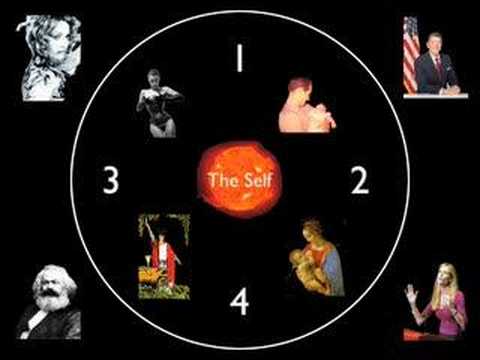Personality refers to an individual’s pattern of thoughts, feelings and behaviors that make a person unique. There are multiple kinds of personalities we encounter in our day-to-day lives — strong, charismatic, open-minded, shy etc.
Carl Jung’s perspective on personality is quite insightful; he wrote that what appears to be random behavior is actually the result of differences in the way people prefer to use their mental capacities.
Jung’s theory on personality types shows the various behavioural patterns and attitude.
Using the theory, you can delve deeper into your own mind and comprehend your thoughts and feelings.
Introvert and Extrovert Personalities/Attitudes:
According to Jung there are two mutually exclusive attitudes – extraversion and introversion.
“Each person seems to be energized more by either the external world (extraversion) or the internal world (introversion).”
The introvert is more comfortable with the inner world of thoughts and feelings, so they will see the world in terms of how it affects them. While the extrovert feels more at home with the world of objects and other people, and is more concerned with their impact upon the world.
Introvert Personalities
Introverts are more comfortable living alone and being by themselves. They depend on their “me time” to recharge; they become immersed in their inner world and run the risk of losing touch with their surroundings or their outer world.
They also tend to be introspective and keep their social circle limited.
Extrovert Personalities
On the contrary, are actively involved in the world of people and things; they are socially active and more aware of what is going on around them.
They like to be part of groups, communities and probable places where they get a chance to interact. The idea of being alone terrifies them, leaving them alienated from their inner selves.
Jung noted that none of us are completely extroverted or introverted, but we certainly connect to one or the other attitude. In all of us, lies an unconscious mind – one which is not conscious of feelings and thoughts all the time, but those feelings and thoughts are capable of affecting our lives nonetheless.
If you take an extrovert you will find his unconscious has an introverted quality, because all the extraverted qualities are played out in his consciousness and the introverted are left in the unconscious. (Jung in McGuire & Hull, 1977, p. 342)
Now, if the extroverts develop to know how and when to bring their unconscious introversion into composition and similarly, when introverts know when to bring their unconscious extroversion into composition, they would have command over their mental space and not vice-versa.
For example, extroverts depend on their external environment all the time. But in life we all face situations where the solution to our problems lies within us. In this situation, if extroverts learn to introspect, they would save themselves from a lot of anxiety and restlessness.
Similarly, introverts depend on their thoughts and feelings too much. Much research has been done that shows introverts are at a greater risk of falling into depression because of their particular habit to isolate themselves in troubling times.
Here, if the introvert consciously works on activating the dormant extrovert quality and choose to speak with people about his/her problem, that might improve their situation. If nothing, one gets a different perspective than the one making rounds in our head.
One has to work on choosing the right attitude that fits in context to the situation. At times introversion is more fitting; and sometimes being extrovert is a better way to deal with a situation.
If one develops flexible approach to deal with their personality, then they are not narrowed by the limitations of being affiliated to their sole personality type. Going further on this line of Jung’s theory, he said that we all think, feel, sense and experience the world in many different ways.
He identified four essential psychological functions: thinking, feeling, sensation, and intuition. Each function may be experienced in an introverted or an extraverted fashion, and one of the functions is more dominant in each one of us.
Some of us depend on thinking and feeling rather than sensing and intuiting. Understanding this psychology could be quite fruitful to understand our world and people who influence our thoughts, feelings, senses and our inner voice. Let us understand the eight different personality types using the chart below:
As Jung noticed, in each of us, one type is dominant than the rest. Suppose, A and B are told to expect danger in a situation. Here, A is a logical being and is ruled by thinking attitude.
He carefully analyses the situation and finds no probability of danger, which makes him take a logical decision to proceed with the situation. B, on the contrary, is guided by intuition, he is having a strong intuition about definite occurrence of danger. And so, he decides to find other ways to go about the situation.
The idea is to understand that in times when we are exposed to dynamic situations, it is great to have a state of mind that is dynamic in nature. At times going by logical thinking is of more importance than catering to confused feelings whereas at other times, believing in your intuition is much more important.
You can use this knowledge to know yourself and your actions better. Don’t be confined to one particular state of mind or personality, rather use your freewill and freedom to mould your personality.
Don’t be trapped in an enigma, as you are inherently free to be whatever you want to be; use this freedom to your advantage.
“Emancipate yourselves from mental slavery. None but ourselves can free our minds.” ~ Bob Marley
Introvert and Extrovert Personalities
References & Image Sources
Jung’s Introvert and Extrovert Personalities







